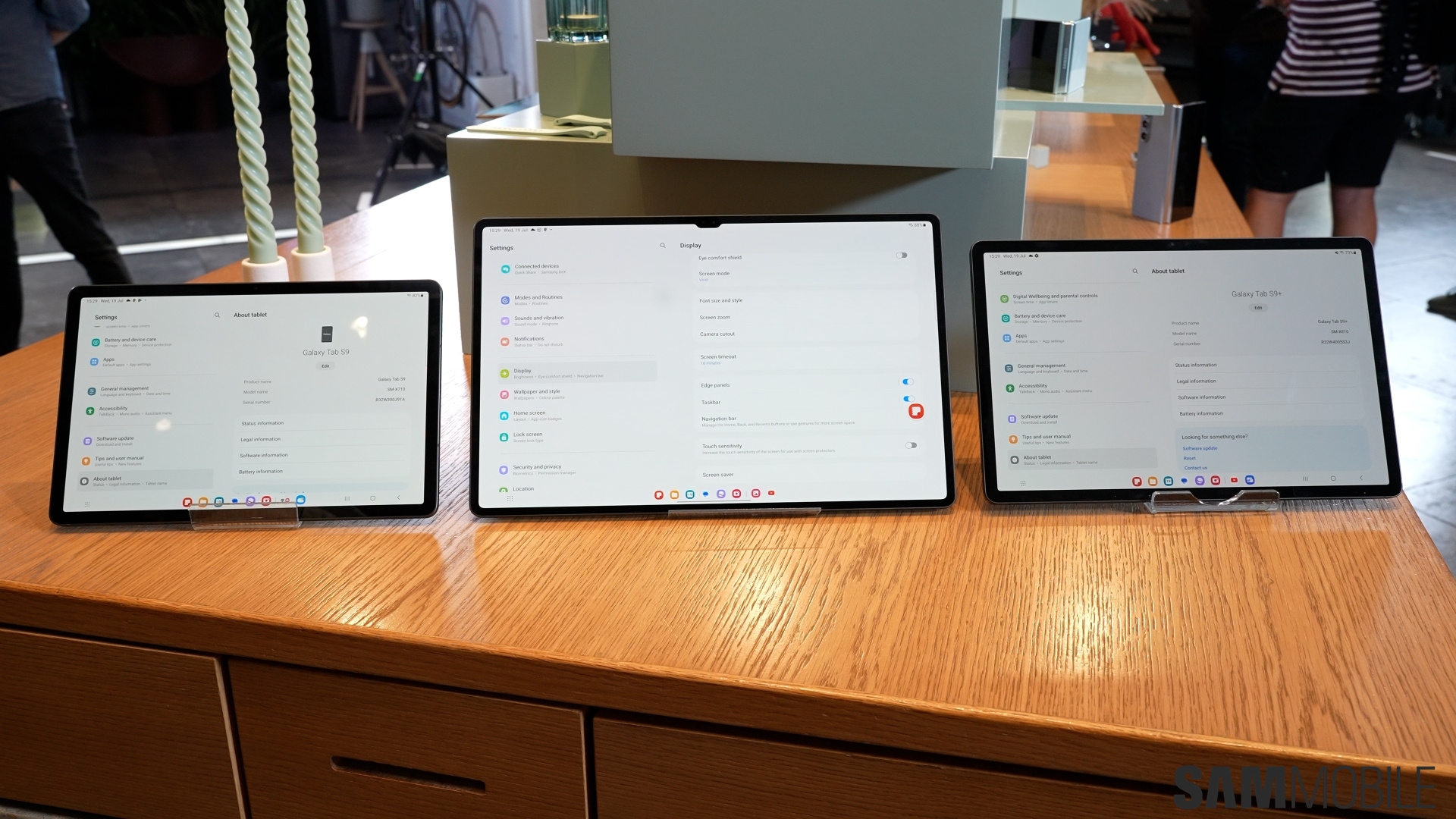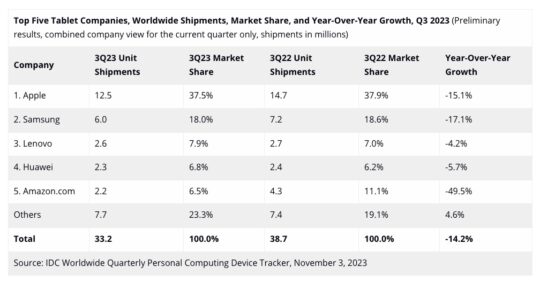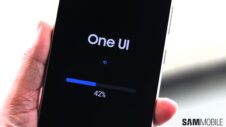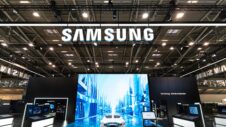Samsung has completed the launch of its entire tablet lineup for 2023, including the Galaxy Tab A9, Galaxy Tab S9 FE, and the Galaxy Tab S9 series. While the South Korean firm has improved its entire lineup, it didn't see any of those improvements translate into better sales. In fact, its tablet shipments fell as the entire tablet market has been on a downturn.
Tablet sales fell 14.2% globally in Q3 2023 due to current economic conditions
A new report reveals how many tablets were shipped by Samsung and all its rivals, including Apple, Lenovo, Huawei, and Amazon. According to IDC's latest quarterly tablet shipments report, Apple is still the king of the tablet market, and it managed to ship 12.5 million iPads and acquire a 37.5% market share in Q3 2023. That is a 15.1% decline compared to the third quarter of 2022. During the same period, Samsung shipped 6 million Galaxy Tab devices, a 17.1% drop compared to numbers from Q3 2022. The South Korean firm managed to keep up its market share figure largely similar to the same quarter from last year, at 18%. The report states that although Samsung's shipments have decreased, the company is focusing on profitability by selling more higher-end tablets.
Lenovo shipped 2.6 million tablets in Q3 2023, a 4.2% drop compared to Q3 2022. It managed to hold on to a 7.9% market share, which is almost a percentage point higher than last year. Huawei shipped 2.3 million tablets and had a 6.8% market share in Q3 2023, a 5.7% drop compared to Q3 2022. Amazon saw the biggest drop in tablet shipment figures compared to last year. The American brand shipped 2.2 million Kindle Fire tablets, which is a massive 49.5% drop compared to last year. Overall, 33.2 million tablets were shipped globally in the third quarter of this year, which is a 14.2% drop compared to the same quarter last year.
You can watch our Galaxy Tab S9 FE+ review in the video below. The story continues after the video.
Jitesh Ubrani, research manager with IDC's Mobility and Consumer Device Trackers, said, “Tablets have unfortunately always found themselves in an awkward middle ground between PCs and smartphones, and this continues to put downward pressure on the market. However, the most successful tablet makers have realized that the tablet works best when paired with rather than against a PC or smartphone, and as such, we expect other tablet makers to follow suit by offering a more unified software and services experience, though this will take some time to coalesce.“








